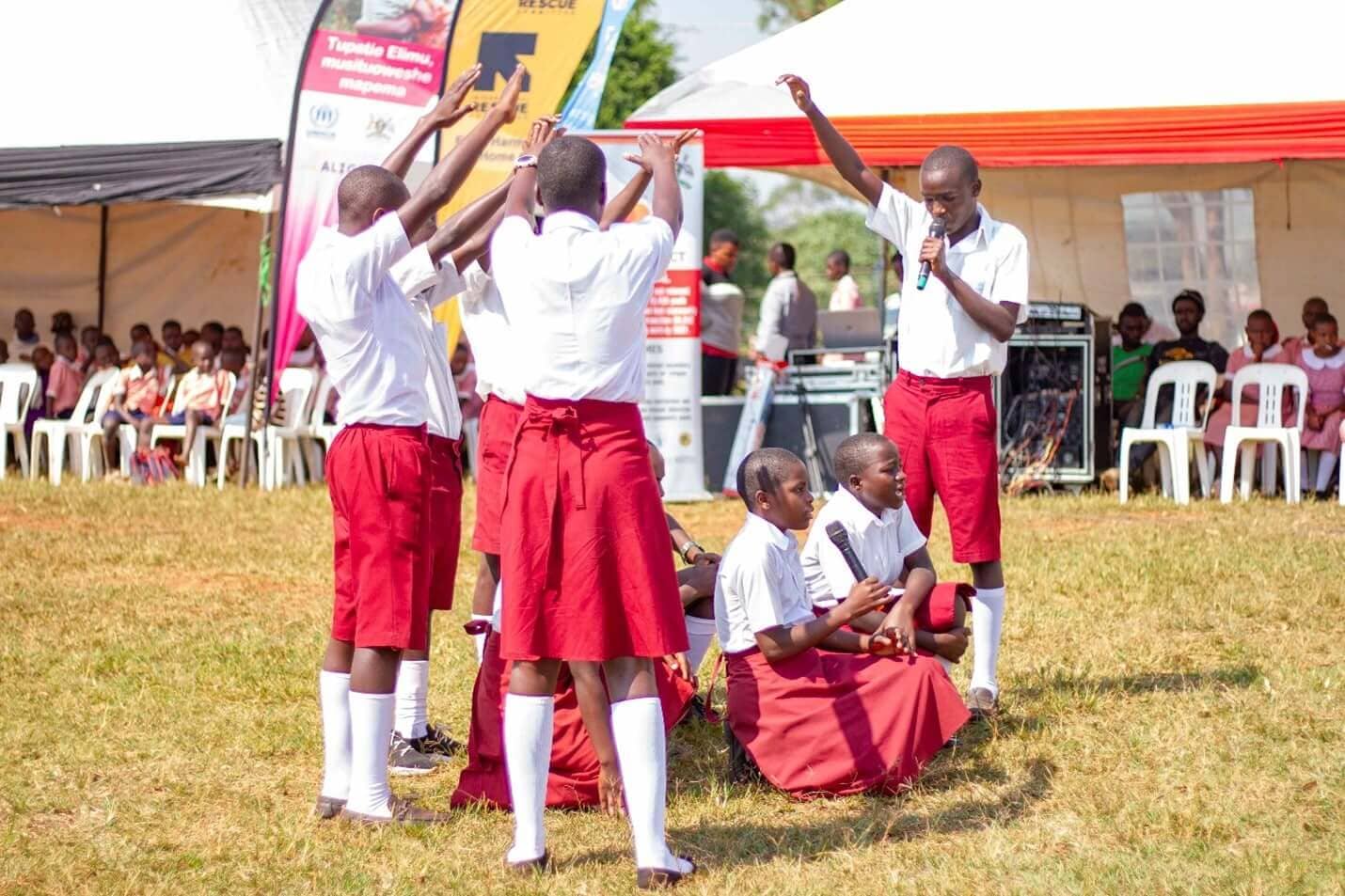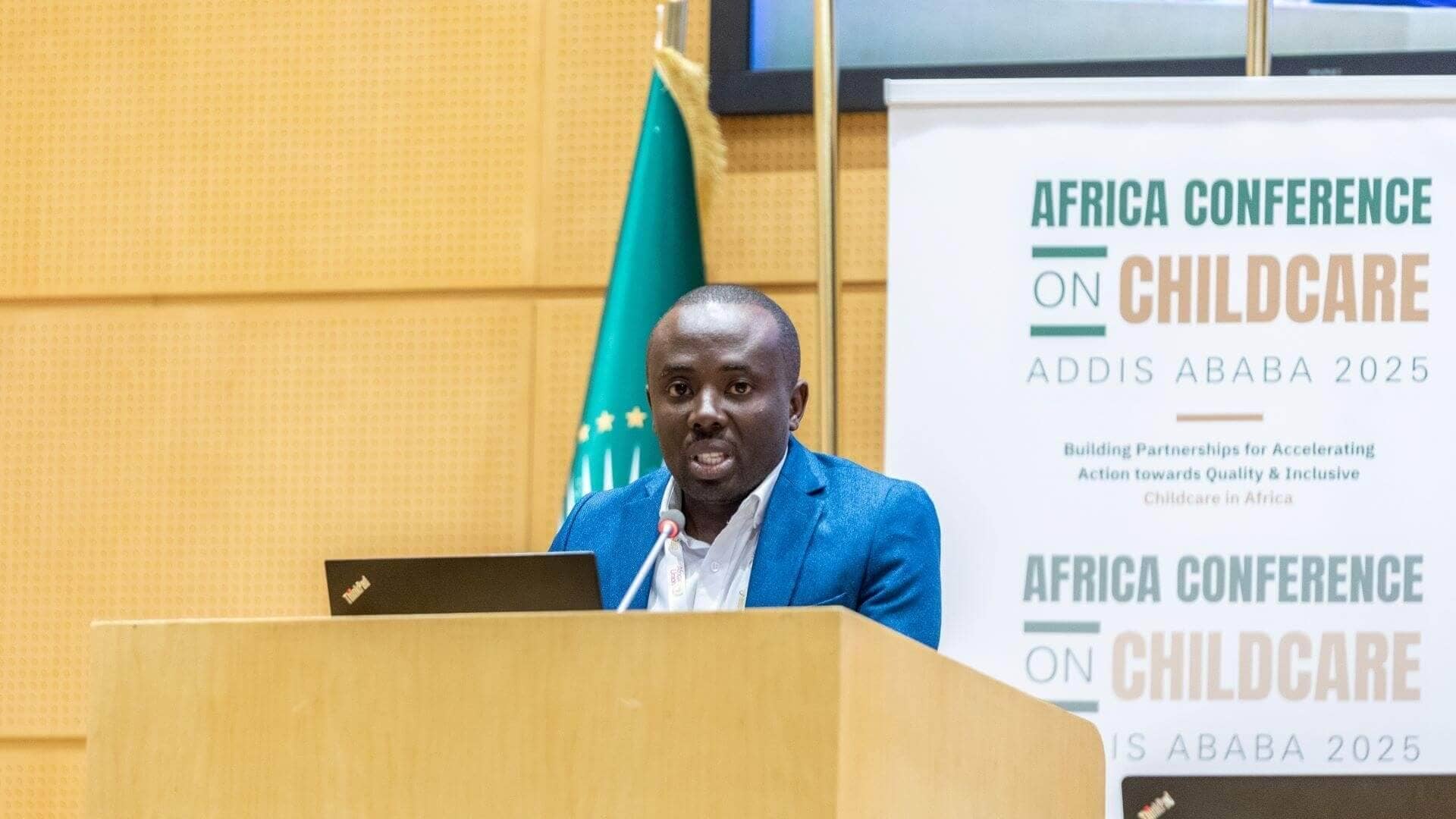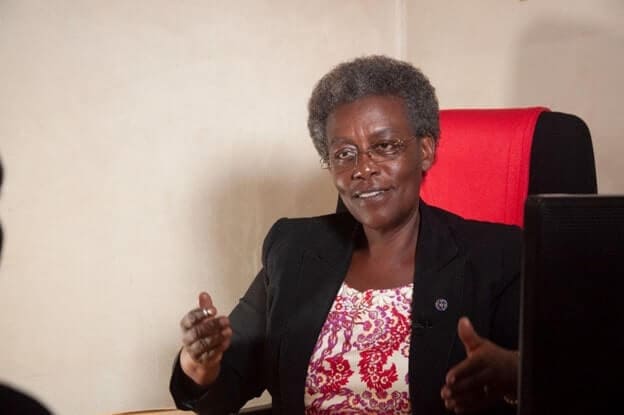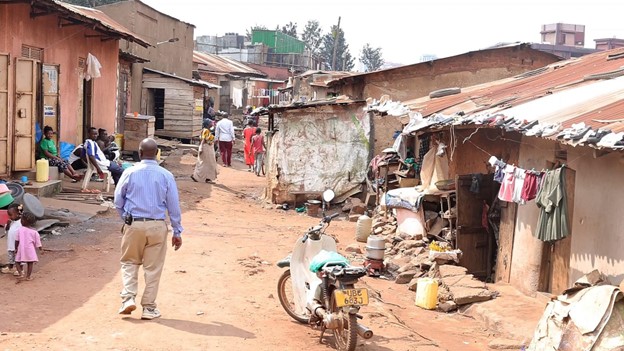Uganda Commemorates Day of the African Child with Focus on Child Protection and Investment
Uganda Commemorates Day of the African Child with Focus on Child Protection and Investment

Learners from St. Pios Primary School perform a powerful skit during the Day of the African Child celebrations in Kamwenge. The children used the platform to advocate for a dedicated percentage of the national budget to support their rights and needs.
On June 16, Uganda joined the global community in marking the Day of the African Child, paying tribute to the 1976 Soweto Uprising and spotlighting the rights and welfare of African children. National celebrations were held in Kamwenge District under the theme: “Planning and Budgeting for Child Care and Protection in Uganda: Progress since 2010.”
Ahead of the event, a children’s dialogue on June 15 brought together 120 students who shared the hardships they face at school, home, and in communities. This included lack of learning materials, corporal punishment, neglect, abuse, and early marriage.
In a position paper, the children urged the government to “hire more professional teachers and social workers, build better schools and health centers, and create platforms for children to share their views.”
Mr. Fred Ngabirano, Commissioner for Youth and Children Affairs, affirmed Uganda’s efforts:
“Today, we reflect on our progress in transforming our commitments to children into tangible public investments and chart a more ambitious path forward.” He emphasized that Uganda’s youthful population is “a tremendous asset if we invest in them early and well.”
Dr. Gloria Seruwagi, of the Baobab Research Programme Consortium, who spoke on behalf of the members of the not-for-profit family operating in the region highlighted the power of partnerships and data:
“The time is now for vibrant partnerships. Safeguarding the African Child takes a village.”
She noted that “without data and evidence, we would have been implementing interventions in the dark,” citing the para-social worker-led intervention that has significantly improved case identification and management.
“In one Ugandan refugee settlement, Baobab’s school-based screening identified and responded to 653 cases of sexual violence in just five months. By comparison, conventional methods had detected only 16 cases in the same school over the previous year, and 40 cases across all five primary schools in the settlement,” she noted.
UNICEF’s Susan Birungi called for urgency and action:
“Let the Day of the African Child be more than a ceremonial occasion. Let it mark a turning point—a moment where we shift from commitment to bold, sustained action.” She stressed that “the protection and well-being of Uganda’s children can no longer be postponed or negotiated.”
Hon. Flavia Rwabuhoro Kabahenda, the Woman member of Parliament representing Kyegegwa district who was also representing Hon. Betty Amongi, the Minister of Gender Labour and Social Development, praised the new measures:
“I’m pleased to see the introduction of a penalty for depriving children of food.” She also proposed tax relief on diapers for children with disabilities: “Taxing diapers is essentially taxing poor people who care for these children.”
Hon. Kabahenda applauded the establishment of a reception center for girls and women facing threats and welcomed the introduction of para-social workers to detect risks early and connect families to support services.
“Investing in childcare and protection is not optional; it’s imperative and foundational to national development,” she concluded.
As the celebrations ended, one message resonated clearly: the future of Uganda lies in how it treats its children today. The Day of the African Child served not just as a reflection on progress, but as a renewed call to action—for government, civil society, communities, and families alike—to ensure that every child grows up safe, educated, and empowered.
By amplifying children’s voices, holding leaders accountable, and investing in sustainable child protection systems, Uganda can turn promises into practice—and honor the courage of the Soweto youth not only in memory, but in meaningful change.
“Let us act—not just remember,” said one student at the dialogue. “Because every child deserves more than a day. We deserve a future.”




